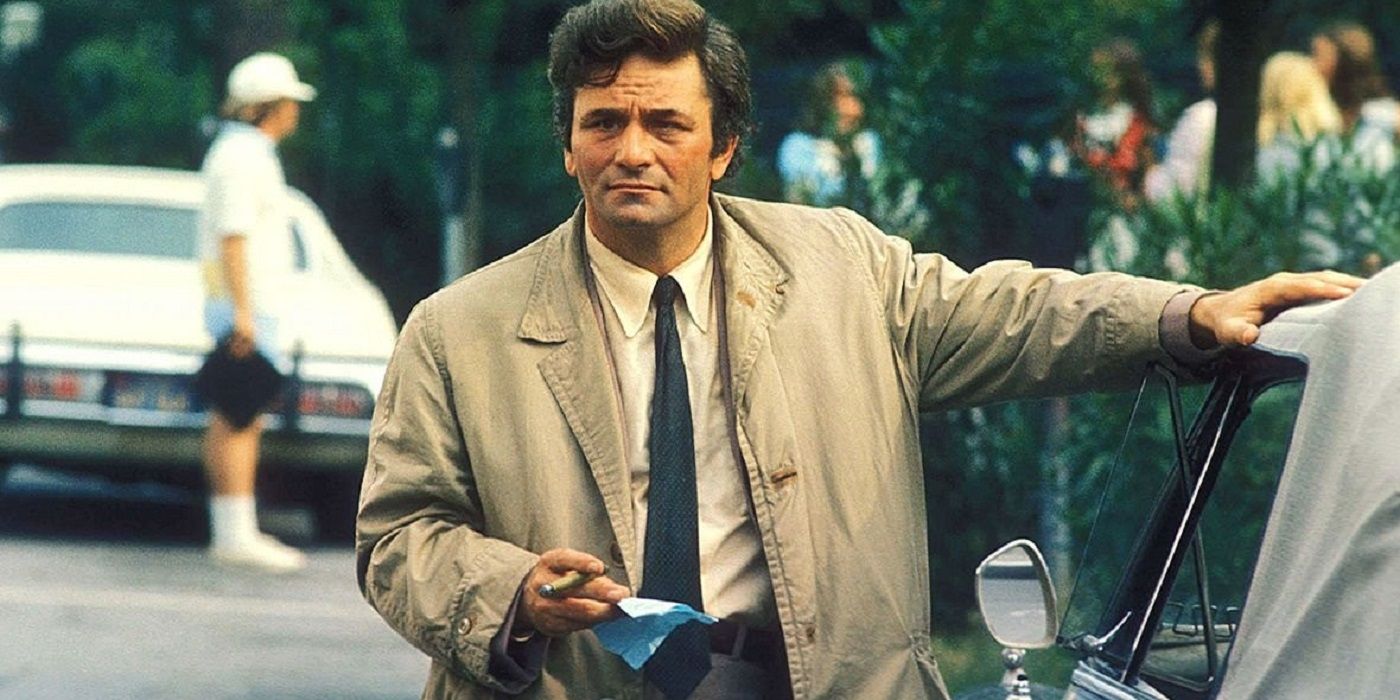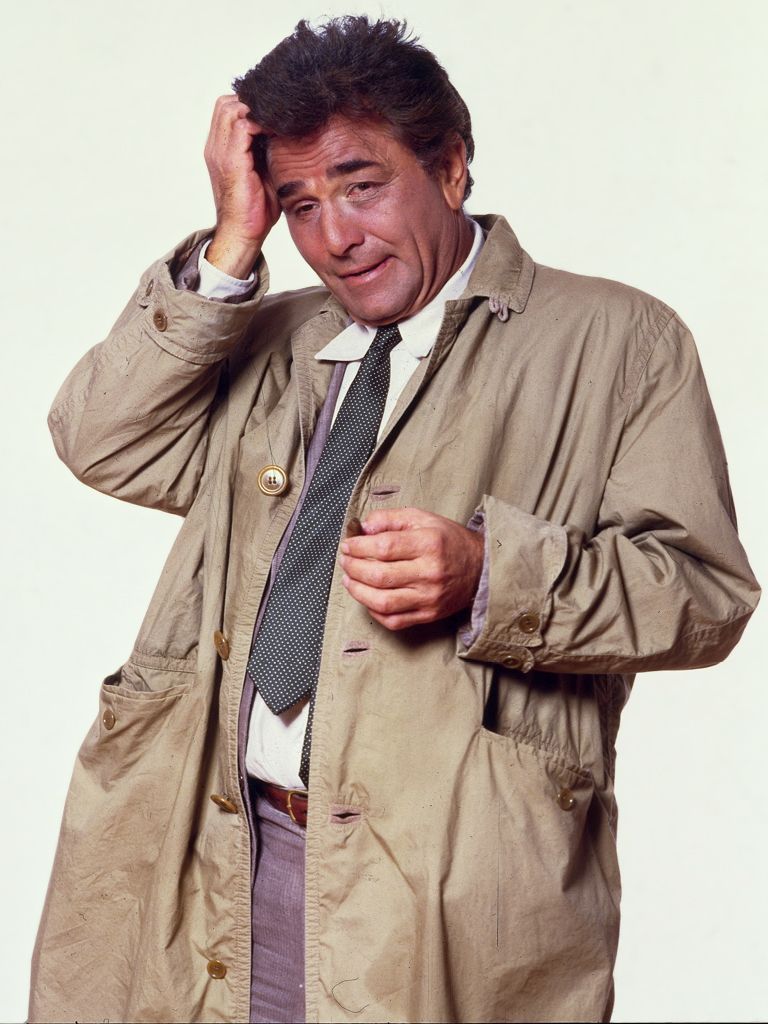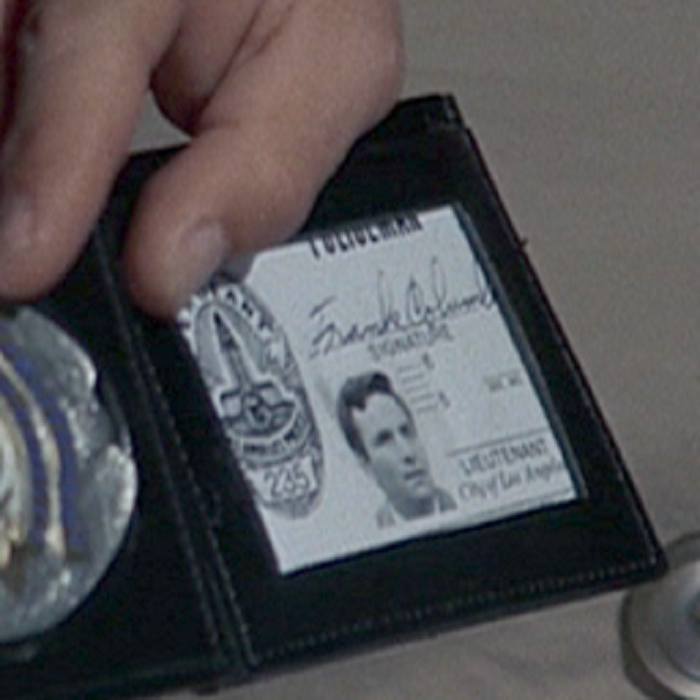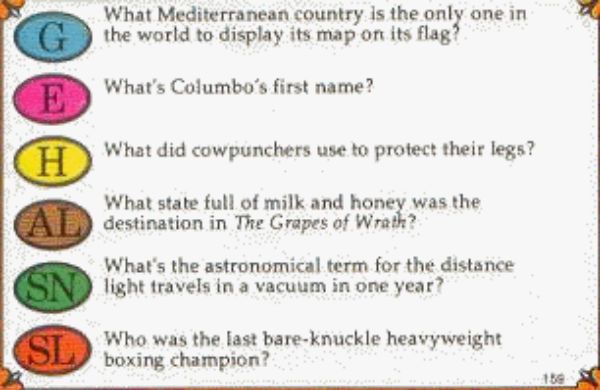TV URBAN LEGEND: A trivia writer used a fake first name for Lt. Columbo as the basis for a lawsuit against the hit board game, Trivial Pursuit.
One of the all-time great TV characters is Lt. Columbo, who was played by the late, great Peter Falk from 1968 through 2003 (sadly, the ratings were not great for the last Columbo TV movie, so Falk never got a chance to do a "farewell" Columbo TV movie before he passed away). Interestingly, while the role will forever be identified with Falk, to the point where it is hard to imagine a Columbo reboot (as who could ever play him quite like Falk?), the role actually originated in a TV movie by actor Bert Freed in 1960 before the writers of the episode (Richard Levinson and William Link) then adapted the character in 1962 into a stage play, "Prescription: Murder," which toured the country starring Thomas Mitchell as Columbo and Joseph Cotten as the doctor/murderer. Eventually the stage play was adapted again into a TV movie in 1968, starring Falk (with Gene Barry as the doctor/murderer), and that was then adapted into a long-running TV series (done as part of NBC's Wednesday Mystery Movie series, so that there would be one movie-length Columbo episode a month, with the other weeks featuring movie-length episodes of McCloud, starring Dennis Weaver as a rural cop who moved to New York City, and McMillan and Wife, starring Rock Hudson and Susan St. James as a crime fighting married couple). After running for seven seasons, Columbo returned after a decade off the air for two more seasons (now as part of The ABC Mystery Movie) before then appearing sporadically in ten more TV movies between 1990 and 2003.
WHAT IS THE MYSTERY OF COLUMBO'S FIRST NAME?
The now-famous format of the Columbo TV series is that the first 20-30 minutes of the episode introduces the murderer of the week, as we see what is going in their lives, why they feel the need to commit murder and how they very cleverly come up with the seemingly "perfect crime." Once the crime has been committed, we then are introduced to Lt. Columbo, who famously arrives looking frazzled along with his rumpled raincoat.
There are then three regular moments in nearly every episode (probably EVERY episode, but I don't want to overpromise). First, Columbo discovers a clue that leads him to realize that the death was, in fact, a murder (and not a suicide or accident, as the murderer often tries to disguise it as). Columbo's bumbling appearance allows the murderer to think that they have the detective fooled. That is, until he casually drops his iconic catchphrase, "just one more thing....." He'll be seemingly out the door, with the murderer secure that they've gotten away with the crime when Columbo will ask them "just one more thing" and his question will invariably lead the murderer to realize that Columbo is on to them. Then it is just a matter of time until Columbo discovers his final clue, the one that proves that the murderer did it (often this comes from Columbo tricking the murderer somehow, like claiming that a victim's contact lens was left at the scene of the crime, causing the killer to then go back and get it, where Columbo and the police are waiting for him).
The main hook is that people think Columbo is dumb, while he's actually brilliant. As he noted in one episode, "You know, sir, it's a funny thing. All my life I kept running into smart people. I don't just mean smart like you and the people in this house. You know what I mean. In school, there were lots of smarter kids. And when I first joined the force, sir, they had some very clever people there. And I could tell right away that it wasn't gonna be easy making detective as long as they were around. But I figured, if I worked harder than they did, put in more time, read the books, kept my eyes open, maybe I could make it happen. And I did. And I really love my work, sir."
Columbo often lulls his suspects into a false sense of security by telling stories about his life, including his never-seen wife and kids (which opens up the possibility that he is making all of them up), but for all the talk of his personal life, the show never has anyone say Columbo's first name. Over the years, we occasionally see his identification, which says "Frank Columbo," but these are just background shots and never actually established firmly in any episode...
However, the real controversy came from a board game that said that Columbo's first name was Philip. What was the big deal about that?
HOW DID COLUMBO'S FIRST NAME CAUSE A LAWSUIT?
In 1974, Fred L. Worth's first collection of trivia, The Trivia Encyclopedia, was released. It was a hit and three years later, The Complete Unabridged Super Trivia Encyclopedia was released. This, too, was a big hit and so in 1981, Worth's third book, Super Trivia vol. II, came out. The books were so popular that Worth worried about people, in effect, "stealing" his trivia for their own work. There is an old tradition among mapmakers to include an intentional "mistake" in their maps, so that if someone else released a map featuring the same mistake, it would be proof that the other mapmaker stole their map. Worth followed that path by sprinkling in a few intentionally false pieces of trivia. One of those examples was, naturally, the fact that Columbo's first name was Philip.
Well, in the early 1980s, a new board game became a blockbuster. Titled Trivial Pursuit, the trivia game had an interesting origin itself (which I detailed in an old Legends Revealed) before exploding in popularity. Players would have to answer trivia questions in different categories and the first one to correctly answer a question in each category would win. Well, obviously, for something like that, the gamemakers needed trivia questions and Worth's work, especially Super Trivia, vol. II, were popular sources for questions. Worth counted, and it seemed like up to a third of the questions in the game were from that one book of his.
Well, sure enough, one of the questions was "What's Columbo's first name?"
With his proof that the game took his work, Worth sued the game for $300 million. However, in 1987's Worth v. Selchow & Righter Company, the case was dismissed, under the theory that Worth could not copyright the facts themselves and while the game took a lot of Worth's facts, it also took facts from lots of other sources, as well. Not to mention that a board game formulating the facts as questions was "substantially different" from Worth's list of facts. Worth appealed all the way to the Supreme Court, but he lost.
The legend is...
STATUS: True
Be sure to check out my archive of TV Legends Revealed for more urban legends about the world of TV.
Feel free (heck, I implore you!) to write in with your suggestions for future installments! My e-mail address is bcronin@legendsrevealed.com.




